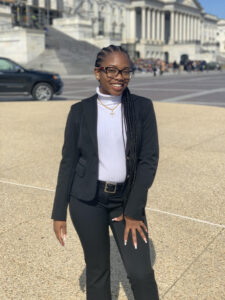
Numerous governors across the United States have plans to reopen their states early for economic reasons, and not because it is safe.
The coronavirus pandemic has put a pause on life for America. This pause included closing non-essential businesses for more than a month, but it did not include pausing all monthly expenses such as mortgages, rent and utilities.
Many Americans, in particular small business owners, are ready for the restrictions to be lifted so they can get back to making money.
Georgia Governor Brian Kemp is set on opening his state during the COVID-19 pandemic. With protests to re-open the country happening all over, Kemp is ready to get the ball rolling even if President Trump disagrees.
According to an article published Thursday by npr.org, Kemp is standing strong on his decision.
“Georgia Gov. Brian Kemp is undeterred by President Trump’s criticism of his move to reopen some nonessential businesses. He insists he will forge ahead with plans to jump-start the economy as early as Friday. The governor said on Wednesday night that he plans to restart ‘shuttered businesses for limited operations’ ahead of the state’s shelter-in-place-order being lifted on April 30.”
Kemp is attempting to bring his state back to life pre-COVID-19. But it may not be the best option for the health of the residents of the Peach State during the global pandemic.
“Kemp is set to allow a range of businesses to open Friday on a ‘limited basis,’ such as gyms, tattoo shops, and hair salons. Theaters are allowed to open Monday, subject to some restrictions, and restaurants will be allowed to open to dine-in customers that same day. Religious institutions can hold services ‘in accordance with strict social distancing protocols,’” according to NPR.
Although many Americans have been begging for “outside” to open back up, now that it is near should they trust it?
Briana Reid, a Florida A&M University graduate, is going to wait until it is all clear to return to her regular outside activities.
“I am definitely waiting before I go outside prematurely. The second wave of COVID-19 is going to hit a lot harder than the first,” Reid said.
Reid knows that other people are excited to resume their daily activities before COVID-19, but she wants them to be cautious about it.
“I warn people to be careful. People probably won’t be coughing and sneezing a lot, but that doesn’t mean door handles, chairs, etc., won’t already be contaminated with the virus,” Reid said.
Even though many states are reaching their peak of COVID-19 cases, we are still not in the clear and ready to resume the normalcy of life before the global pandemic.
COVID-19 does not have a vaccine or a cure. When someone is infected with the virus, they are told to take Tylenol and quarantine alone at home for at least 14 days.
COVID-19 is not a visual virus, meaning you cannot see what items are contaminated with the virus. You cannot visually see who has the virus and some people who are infected show no visual symptoms.
With no cure for COVID-19, protesters begging for the country to reopen and government officials voicing opposing views on how to proceed during this pandemic, it is safe to say stay home when the states reopen prematurely. Governors are not reopening because it is safe outside but for economic reasons.